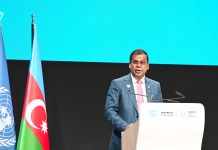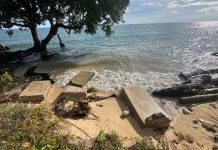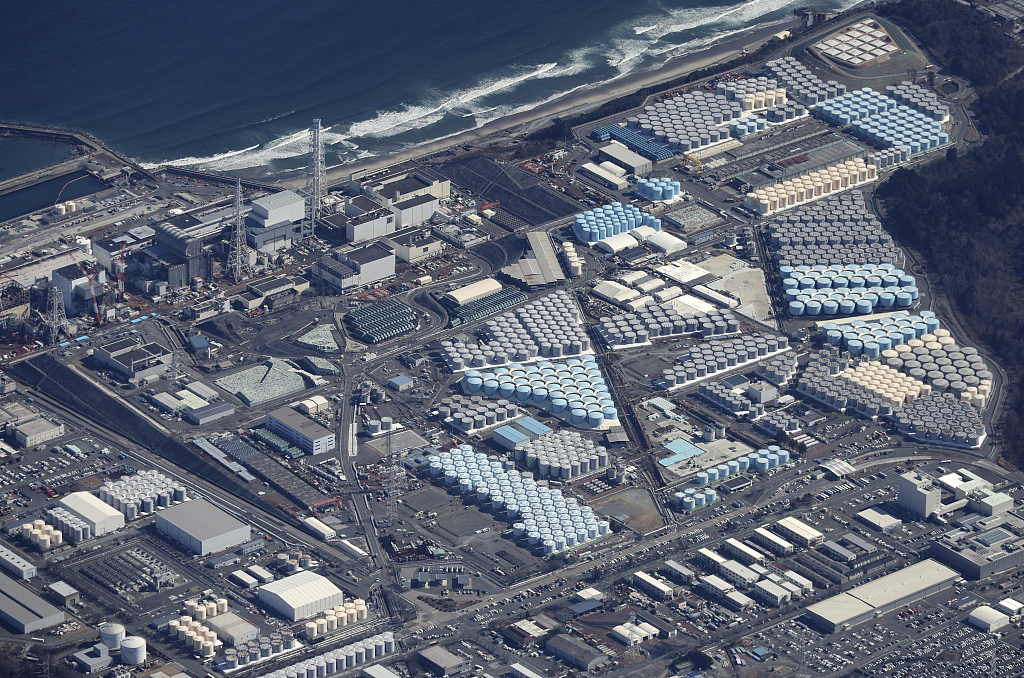As Japan allows nuclear-contaminated water to be dumped into the Pacific Ocean, Pacific islands and South Asian regions must unite in vigilance, advocating transparent information-sharing, rigorous monitoring and coordinated action, experts say.
“The international community, in solidarity, must hold nations accountable for responsible environmental stewardship,” said Anjal Prakash, clinical associate professor in research at the Bharti Institute of Public Policy, Indian School of Business, in Hyderabad.
“As custodians of our shared planet, we must ensure that decisions today do not imperil the sustenance and well-being of future generations.”
In the wake of Japan’s decision to release toxic water into the ocean, the world watches with heightened concern as ripples of environmental impact extend far beyond its shores, he said.
The move raises questions about the consequences for South Asia and the Pacific islands, Prakash said. “The delicate balance of marine ecosystems, already under stress from climate change and pollution, faces a new challenge that demands global attention.”
Kalinga Seneviratne, a media analyst at the University of the South Pacific (USP) in Fiji, said dumping radioactive water into the ocean is not about science but respect. Across the Pacific there are fears that the ocean will be polluted and that fish could become too toxic to consume, he said.
“Japan has shown an arrogance that does not respect regional concerns. Japan and its allies have said the waters will be scientifically monitored. What if they find it contaminated at some stage? Has science got an answer? The International Atomic Energy Agency and Japan have no scientific answer to it sadly.”
The Human Rights and Anti-Discrimination Commission in Fiji has condemned Japan’s discharge of nuclear-contaminated water into the ocean, urging Pacific Island leaders to stand in solidarity to oppose it.
The right to a clean and healthy environment is linked to other fundamental human rights such as the right to life, health, food, water and sanitation among others, the commission said.
It implored the Fijian government to uphold its constitutional obligations to protect the rights of everybody in the country.
Hundreds of protesters took to the streets of Fiji’s capital, Suva, on Friday to vent their anger over Japan’s dumping of nuclear waste.
“This is a horrendous and horrible move by Japan,” said one protester, Lusia Lagilevo. “It’s a disrespect to our rights as human beings. Although we are from small island countries, we still deserve to have our rights, our dignity and our freedoms respected.”
The Chinese embassy in Suva said the discharge will spread the risks of nuclear contamination to Pacific rim countries including China and the rest of the world.
“The ocean sustains humanity. The blue Pacific is home to all human beings including Chinese and Fijian people.”
The Prime Minister of the Solomon Islands Manasseh Sogavare condemned the start of releasing the toxic water into the Pacific Ocean.
It “has an impact on our people, ocean, economy and livelihood”, he said.
The release of nuclear-contaminated water could have far-reaching ecological ramifications, Prakash said. “Marine life, integral to the livelihoods and food security of many coastal communities, may be endangered, affecting not only Japan but also neighbouring regions. The currents of the Pacific Ocean could carry pollutants across vast distances, affecting marine biodiversity, fisheries and even human health.”
Lavetanalagi Seru, co-founder of the Fijian group Alliance for Future Generations, said the Pacific has had a history of nuclear testing, and Marshall Islanders are still grappling with the enduring aftermath of nuclear contamination.
“We can’t allow history to repeat itself, as we depend on the ocean for our livelihood. It’s a source of economic opportunities for many of us,” Seru said.
According to Fiji’s constitution, every person has the right to a clean and healthy environment, which includes the right to have the natural world protected for the benefit of present and future generations through legislative and other measures, the Human Rights and Anti-Discrimination Commission said.
“The UN General Assembly has already adopted a resolution declaring that the right to a healthy, clean and sustainable environment is a universal human right. It is the duty of everyone to protect that right,” he said.
SOURCE: CHINA DAILY/PACNEWS














